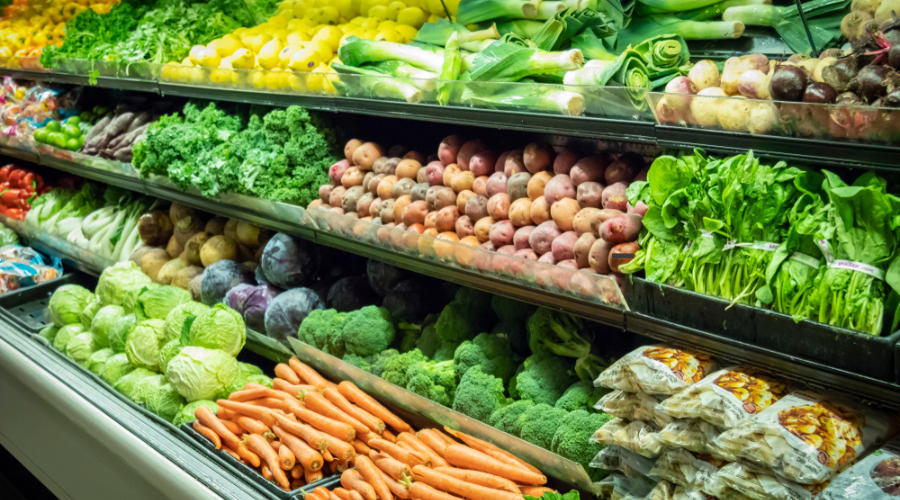Popular supermarket is accepting smaller vegetables from flood-hit farmers
18th January 2024
Tesco has said it will temporarily accept some smaller-than-usual sprouts, cauliflowers, cabbages and leeks to help UK farmers struggling with the devastating weather conditions that have affected their livelihoods.

The heavy rainfall and subsequent flooding started in the late autumn and continued through Christmas and into the New Year. Many farmers have been counting losses after another storm hit the country at the beginning of January.
While the winter vegetables may be smaller than usual, supermarket chain Tesco has realised that they still have the same great taste, and so UK farmers won’t be punished, and it has said it will accept them rather than forcing famers to sell at lower prices to the open market.
Risk of shortages reduced
The move by Tesco will also help to keep British produce on shelves for customers and reduce the risk of shortages.
Tesco fresh produce and horticulture director, Tom Mackintosh, said: “By accepting slightly smaller sprouts, cauliflower, cabbages and leeks, we can support the fresh produce industry while ensuring that customers are able to continue to buy British winter vegetables. We’re pleased to be able to provide support to our growers, farmers and suppliers who are facing really challenging harvesting conditions.”
Sprouts were a particular problem due to their size and some were growing underwater due to the flooding. In order to dry the wet sprouts, Tesco worked with growers to develop a new innovative drying method, using cool air blowers to literally blow the water off them in their storage pallets.
The worst flooding of this century
The East Midlands, and Lincolnshire in particular, have been particularly hard hit since the storms and flooding started in October. One of the area’s biggest growers of winter vegetables, TH Clements, said that they have only had a handful of dry days since October, which has made harvesting “extremely difficult”.
TH Clements commercial director, John Moulding, said: “This is the worst flooding we have had this century and we have lost about 20% of our total winter crops, including sprouts, cabbages, cauliflower and leeks. It’s been a very tough time for us for more than three months, both physically and financially in having to pull the vegetables out of the muddy fields.
“We have literally had to race against the clock to get the vegetables pulled out of the ground to stop them from rotting. The flexibility that Tesco has given us has allowed us to maximise the amount of product we can get on their shelves, therefore guaranteeing greater availability for shoppers.”
From farm to plate
NFU horticulture and potatoes board chair, Martin Emmett, added that customers should not worry about vegetable shortages.
Mr Emmett added: “The recent poor weather, flooding and heavy rain has disrupted the growth and harvesting of some vegetable crops, such as potatoes, since land became waterlogged or flooded. We have no expectations of shortages currently, but it remains important that we make the best of what’s available with supermarkets offering flexibility to growers when it comes to crop specification. In doing so the food chain from farm to plate will avoid unnecessary food waste”.
Read more arable articles in our arable hub.
Check how farmers can compensate for the wet winter here.



